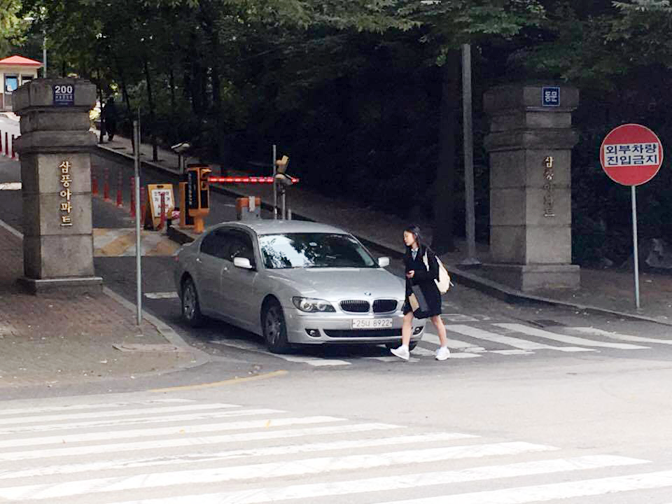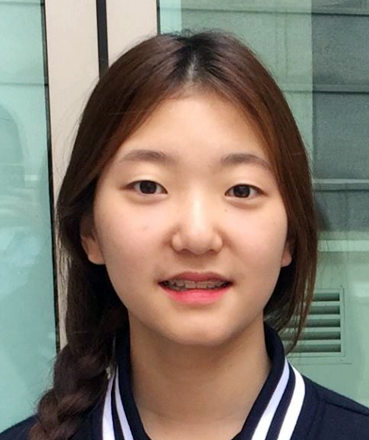It’s right around afternoon at a certain All-Girls’ School in Seoul, Korea. Viewing through the glass windows of the classrooms, students are seen with their heads down over their textbooks, furiously taking notes. Once the class door opens, the homeroom teacher steps in. The pupils will all rise with alertness and wait patiently for instructions, ties neatly tucked away under the collars of perfectly ironed, white button-up shirts, not a single wrinkle to be found on the pinstripe blazers.
Tight discipline is the fundamental basis of the educational system in South Korea, whether it is related to the external appearances or mannerism. Especially in public schools, students are required to keep their hair tidy and at a certain maximum length (called doobalgyujae or 두발규제 in Korean) as well as keeping away from excessive perming or dying in colors on the brighter color scheme. Moreover, but extremely strict no-makeup policy is set for the majority of middle and high schools, turning up a notch of the volume on the behavior protocol once again. Not just the physical appearance, but the teachers keep a watchful eye over regulating opposite-gender relationships, especially when it comes down to dating or showing excessive display of affection on school grounds. The long list of the different forms of discipline are easily found, ranging from the uniform-only dress code to the no-electronics policy, at Korean schools. While rigid disciplinary regulations still persist today and controversy upon the issue escalates, many students voiced out their opinions with a conviction that the system has gone too far.

Caption: High school student walking home from school
“When I was a student at the Korean middle school three years ago, any sort of intimate physical display of affection with the opposite gender was strictly prohibited. When a teacher spotted me holding hands with my boyfriend, we were both pulled in for a long lecture about following school rules for the entire lunch time,” Sage Hwang, a Korean International School student retorted with frustration.
All-girls’ schools are no exception. “Cosmetics in general is definitely not allowed in our school, and this probably applies to most other schools as well. If a student puts on a slightest layer of tinted lip balm, the teacher goes as far as to wiping it off with a tissue herself,” Seowoo Lee, an All-Girls’ School student, added.
Co-ed or single gender based, tightly organized regulations exist everywhere in Korean public schools, raising cries of resistance from students. With that said, many schools today have revised their rules to slightly loosened versions, such as allowing discreet makeup, hair dying to natural colors, and Public Display of Affection levels to the bare minimum. Teachers are primarily concerned with those revisions becoming a distraction to the overall classroom environment, considering “sensible attitude” as a crucial component of ordinary students. While the administrators push for the code of discipline as the next logical step, pupils, on the other hand, are increasingly expressing uneasiness over the compulsion they feel over having to follow such rigid rules. As the pressure accumulates within students, the tight Korean public school system is undeniably in need of a change, necessitating the protection of the students’ rights to express freedom in their own choices.
Co-ed or single gender based, tightly organized regulations exist everywhere in Korean public schools, raising cries of resistance from students. With that said, many schools today have revised their rules to slightly loosened versions, such as allowing discreet makeup, hair dying to natural colors, and Public Display of Affection levels to the bare minimum. Teachers are primarily concerned with those revisions becoming a distraction to the overall classroom environment, considering “sensible attitude” as a crucial component of ordinary students. While the administrators push for the code of discipline as the next logical step, pupils, on the other hand, are increasingly expressing uneasiness over the compulsion they feel over having to follow such rigid rules. As the pressure accumulates within students, the tight Korean public school system is undeniably in need of a change, necessitating the protection of the students’ rights to express freedom in their own choices.

Ashley Kim
Grade: 11th
Korea International School
By Ashley Kim

